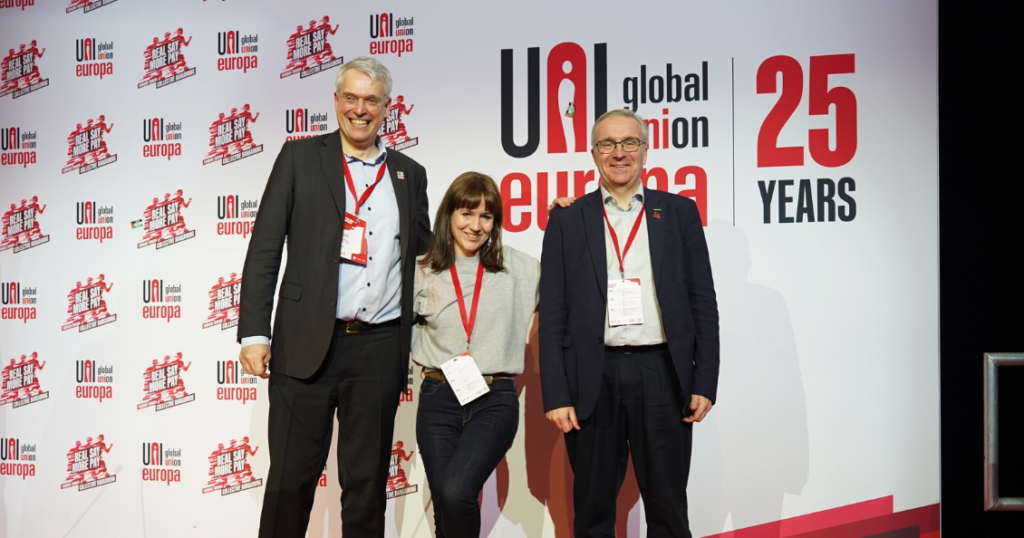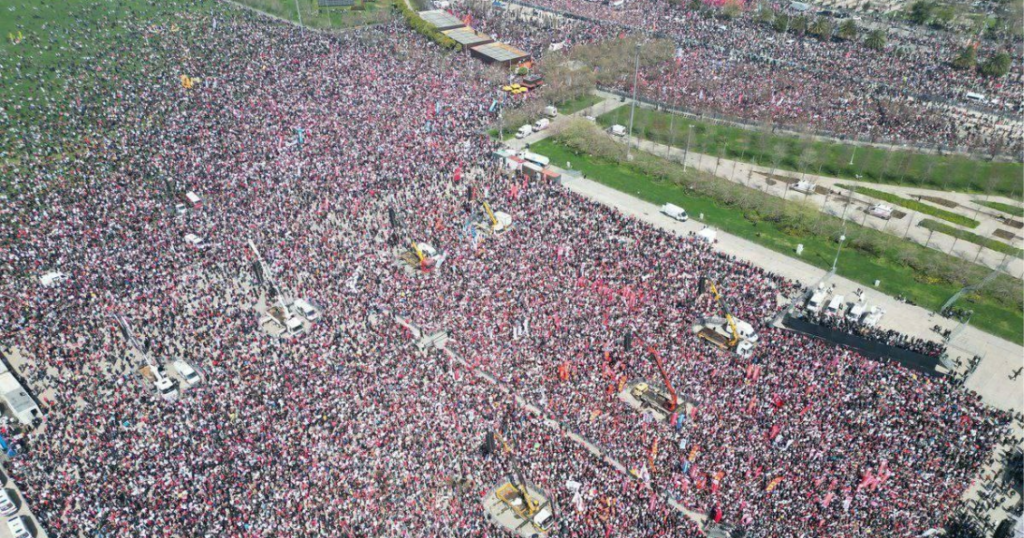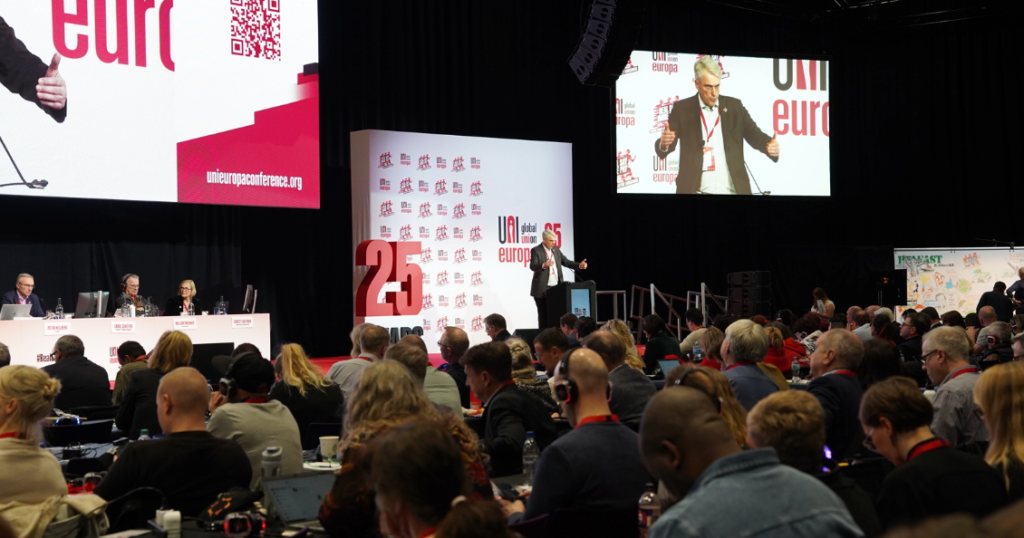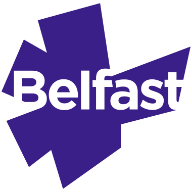6th UNI Europa Conference closes with powerful call to defend democracy
UNI Europa Conference concluded in Belfast with a clear and urgent message from union leaders to defend democracy.
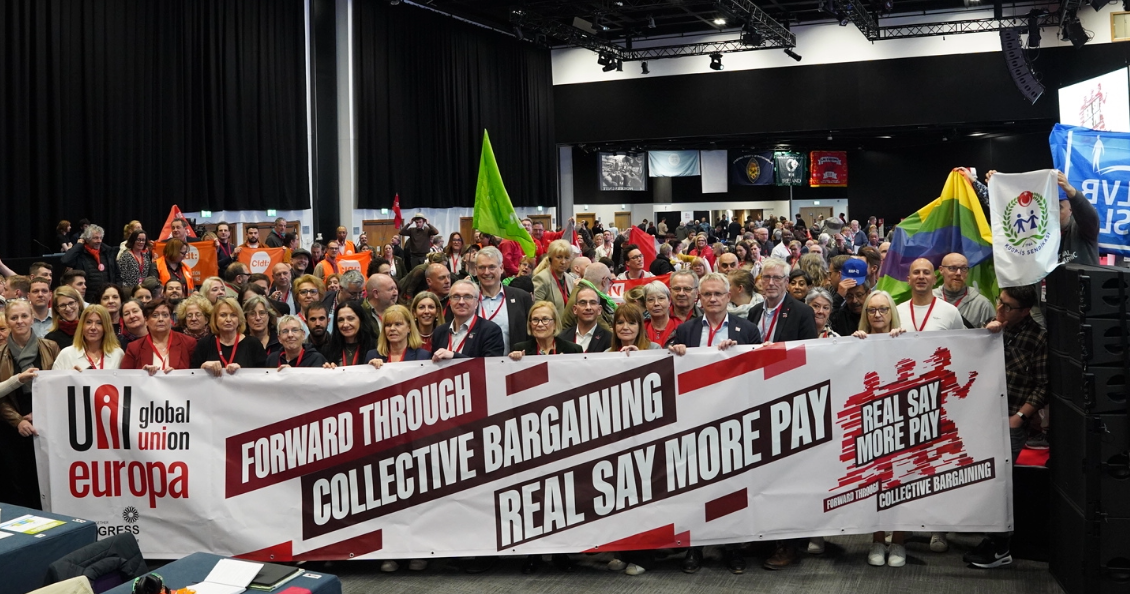
The closing day of the 6th UNI Europa opened with a debate on one of the most pressing challenges facing the modern labour movement: the rise of AI and its growing influence across service sectors, and the increasing hostility of some tech companies towards unions and democracy.
“Sixty-six percent of BECTU members think the impact of AI will be negative,” said Philippa Childs (BECTU, UK), highlighting a widespread sense of unease among creative workers. “The current lack of transparency is already harming creators – especially freelancers and the self-employed. We need enforceable safeguards.”
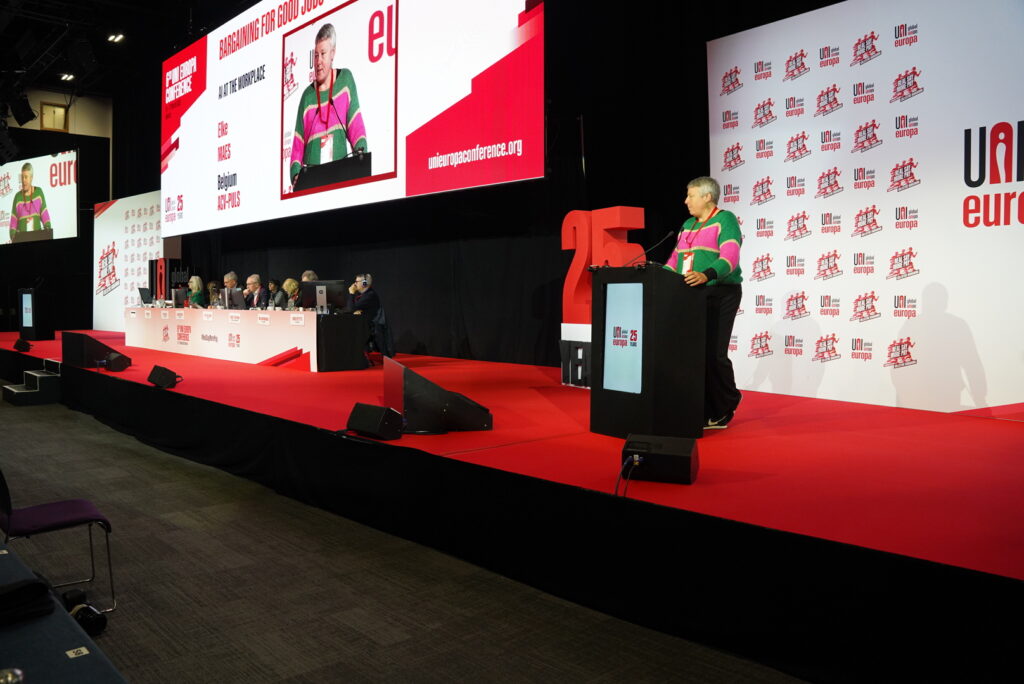 Union voices from across Europe echoed that sentiment. Elke Maes (ACV-PULS, Belgium) and Odysseus Chatzidis (ver.di, Germany) called for GDPR-compliant data governance, while Mari Carmen Donate (FESMC-UGT, Spain) demanded that AI-driven decisions always be supervised by human oversight to prevent discrimination.
Union voices from across Europe echoed that sentiment. Elke Maes (ACV-PULS, Belgium) and Odysseus Chatzidis (ver.di, Germany) called for GDPR-compliant data governance, while Mari Carmen Donate (FESMC-UGT, Spain) demanded that AI-driven decisions always be supervised by human oversight to prevent discrimination.
“AI should help workers progress – not increase pressure on them,” warned Frédéric Favraud (FEC-FO, France), reflecting a common concern about technology being used as a tool of control rather than empowerment.
In the banking sector, Corine Ferreira (FSPBA-CGT, France) described a quiet but devastating transformation. “Digitalisation was imposed, and the promised job creation never materialised. Meanwhile, profits are up and wages have stagnated.”
From the entertainment industry, Riccardo Saccone (SLC-CGIL, Italy) stressed the need for binding European legislation: “Generative AI is undermining copyright protections. No worker must be left alone in this. We need new social protections – and a new welfare state.”
The day was marked by both caution and ambition. Annette Mikelsen (Finansforbundet, Denmark) shared a bold initiative to train one million Danes in AI skills through a national digital partnership. “Let’s make AI a source of better jobs and not a threat to livelihoods.”
Heidi Bang (Negotia, Norway) struck a defiant tone: “Big Tech wants AI to look like magic – to replace us, to concentrate power. But progress will not be handed to us. We have to fight for it.”
Peter Hellberg, President of Unionen and UNI Europa, recalled the central role of unions in the defence of democracy: “Our democratic way to manage our unions is carried out through meeting discussion and respect to make joint decision. As a movement we must protect the democratic process and include new groups of people. Democracy is endangered everywhere in the world.
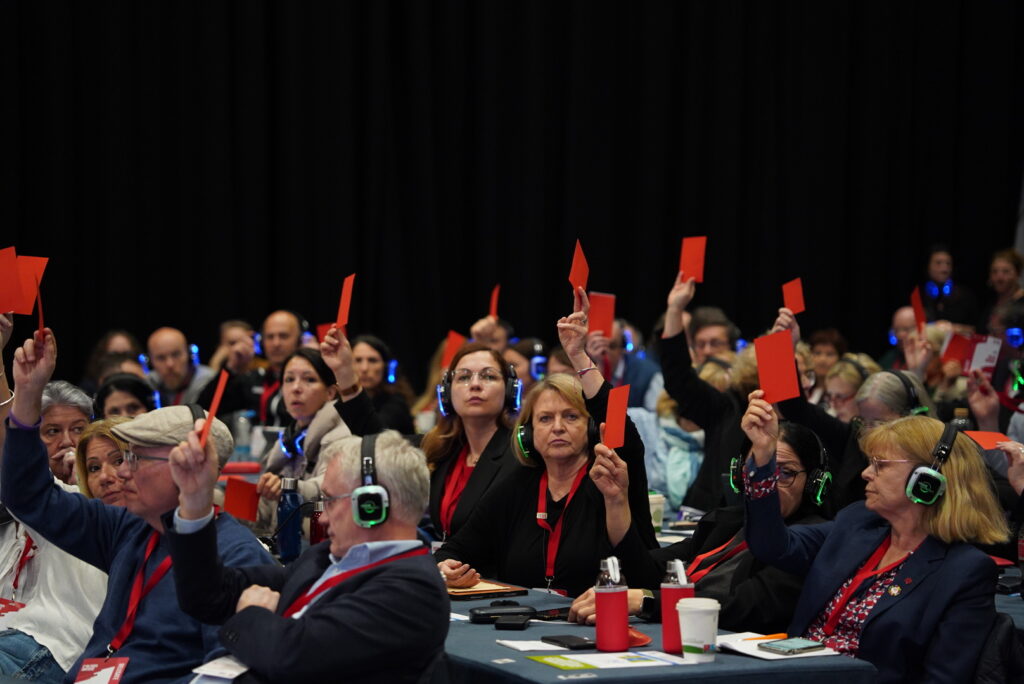 UNI Global Union’s General Secretary Christy Hoffman made a call to action: “In these dark and difficult times, the path ahead is tough – but the answer is clear. Workers are counting on us. Only unions have the power to fight back against oligarchs, demand ethical use of AI, and defend democracy – both at the bargaining table and in the halls of parliament. It may not be new or sexy, but this is our core mission. We must act with courage, because together, we are unbreakable.”
UNI Global Union’s General Secretary Christy Hoffman made a call to action: “In these dark and difficult times, the path ahead is tough – but the answer is clear. Workers are counting on us. Only unions have the power to fight back against oligarchs, demand ethical use of AI, and defend democracy – both at the bargaining table and in the halls of parliament. It may not be new or sexy, but this is our core mission. We must act with courage, because together, we are unbreakable.”
UNI Global Union President Gerald Dwyer added, “Collective bargaining is more critical than ever. No company reflects the stakes of this fight more than Amazon – and it’s inspiring to see UNI affiliates lead the charge.”
UNI Europa Regional Secretary Oliver Roethig reminded delegates what they came to Belfast for: “We want real say and more pay for services workers across Europe – and that is what we can achieve through collective bargaining.”
With overwhelming majorities, Oliver Roethig and Peter Hellberg were re-elected as regional secretary and president respectively, while Lieveke Norga from ACV Puls became 1st vice-president, before the Conference closed passing motions and resolutions on the fight against the far right and for the defence of democracy.
With the new leadership and a clear strategy for the years ahead, UNI Europa is prepared to strengthen, expand and deepen worker power until the next Conference in 2030.
